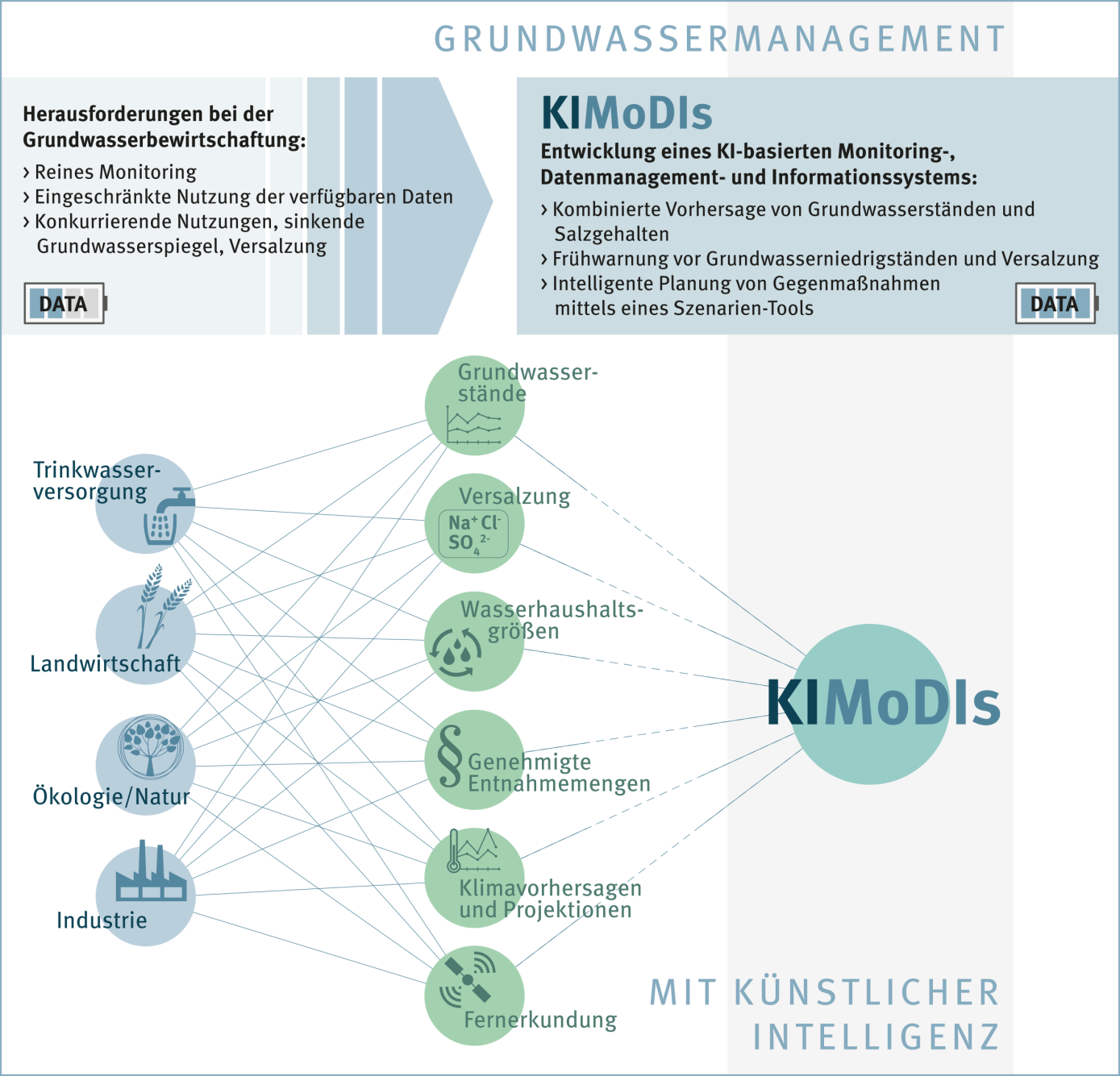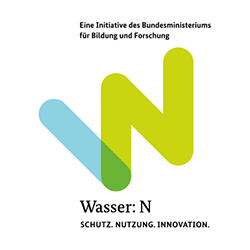KIMoDIs - AI-based monitoring, data management and information system for coupled forecasting and early warning of low groundwater levels and salinisation
Brief description
Climate change has a direct impact on groundwater resources in Germany. Climate projections up to the year 2100 show that the current trend towards drier and warmer summer half-years will continue. The climatically induced drop in groundwater levels will be exacerbated by a presumed increase in water demand, and there is also a threat of salinization due to the rise of saline deep waters or seawater intrusion near the coast.
In order to make optimal and sustainable use of available groundwater resources, the KIMoDIs project will develop a monitoring, data management and information system for coupled prediction and early warning of groundwater low levels and salinization based on artificial intelligence (AI) methods. The results will be merged into a user-specific decision support tool, which will enable intelligent planning of countermeasures on a site-specific basis by means of various climate and usage scenarios.
For this purpose, all available management data of water suppliers as well as classical groundwater monitoring will be merged and combined with remotely sensed real-time analyses of irrigated agriculture. Artificial intelligence (AI) methods are used for coupled prediction of groundwater levels and salinization, for monitoring network optimization and for early warning of critical conditions with regard to drinking water supply and groundwater-dependent ecosystems. The developed planning tool thus serves to safeguard drinking water resources in terms of quantity and quality (salinization) and thus contributes to the fulfillment of the objectives of the national water strategy.
Objectives
The aim of the KIMoDIs project is to develop an artificial intelligence (AI)-based monitoring, data management and information system for short- (seasonal), medium- (1 to 10 years) and long-term (up to 2100) forecasting of groundwater levels and salinization. In addition, the user-specific decision support system will provide early warning of low groundwater levels and salinization and the associated damage. Various usage scenarios will also enable intelligent planning of countermeasures on a site-specific basis, thus ensuring sustainable groundwater management.
The methodological development and demonstration of the approach will be carried out supra-regionally in the state of Brandenburg, taking into account all aspects such as abstraction for drinking water supply, industry and agriculture, monitoring of irrigated agriculture with high temporal resolution, and the risk of deep salinization due to overuse. The developed approach is subsequently transferred and tested on i) regional level, for a catchment area of the Harzwasserwerke in Lower Saxony with focus on problematic effects of low groundwater levels and ii) local level, using the example of the island Langeoog with consideration of the tourism-related strong variability of the seasonal water demand with increasing drought as well as endangerment of the drinking water supply by salinization.



